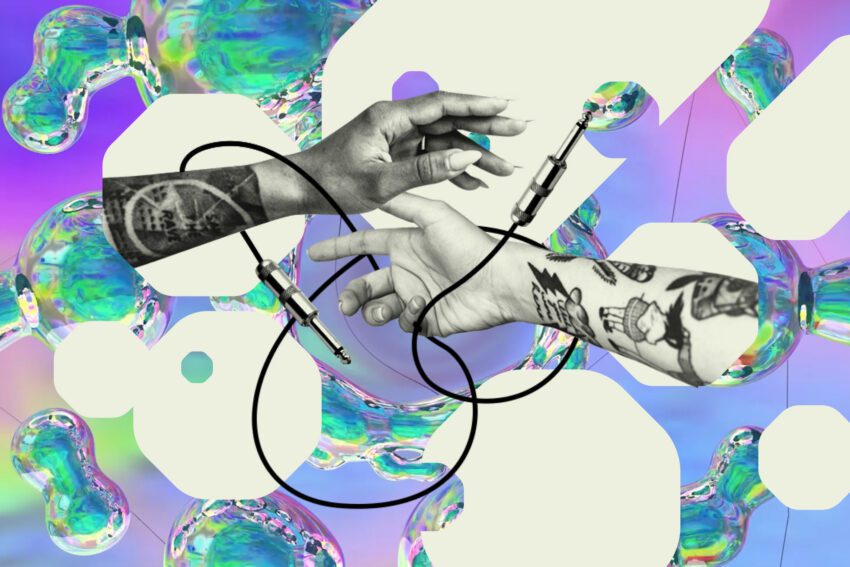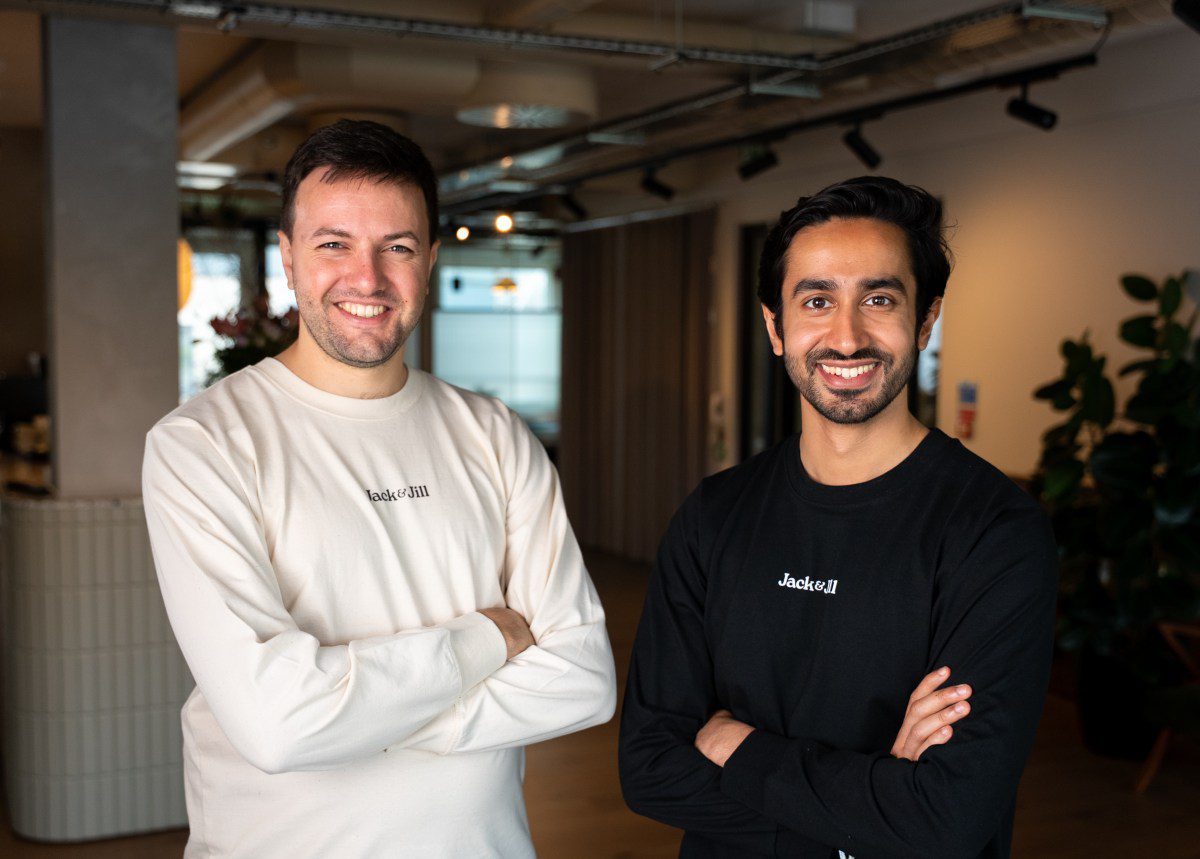
the diy and irl energy of punk Ekko Astral is redefining the punk rock landscape by intertwining music with activism, creating a unique space for mutual aid and community support.
the diy and irl energy of punk
Ekko Astral: More Than Just a Band
Ekko Astral is not merely a trans band, despite having a trans frontwoman, Jael Holzman. Their music often explores themes related to the trans experience, but they emphasize that their identity transcends any single label. The three-piece punk band aims to remind listeners of the societal challenges they face while providing “power anthems” that inspire resilience. Their debut full-length album, pink balloons, is a testament to this ethos, clocking in at less than 36 minutes and embodying what the band describes as the genre of “mascara mosh pit.”
Music as a Political Tool
Ekko Astral’s mission extends beyond music; they are committed to making the world a better place by addressing a range of social issues, including trans rights. Holzman articulates the importance of harnessing the energy found online and translating it into real-world action. “Magic happens when you bring together people who are fighting for change through mutual aid,” she states. This perspective positions the band as a political project, aiming to create safe spaces for marginalized communities, especially as online environments become increasingly hostile.
The Role of Community in Activism
In a world where isolation is rampant, particularly among queer individuals, Ekko Astral seeks to disrupt the status quo. Holzman notes, “People are increasingly isolated. People are increasingly just siloed onto their screens and their phones, so you need to actually try to develop campaigns to disrupt.” This sentiment reflects a broader concern about the impact of social media on community building and activism.
Leveraging Media Connections
Holzman’s background as a congressional and climate journalist since 2017 informs her understanding of media narratives and their power. Recognizing the influence that major artists have when they speak out on political issues, she decided to leverage her connections within the music industry to amplify the fight for trans rights. This initiative culminated in Liberation Weekend, the largest trans-led music festival in Washington, D.C., held in May.
Impact of Liberation Weekend
Over two days, more than 30 acts, including notable names like Speedy Ortiz, Ted Leo, and Bartees Strange, performed to raise over $30,000 for the Gender Liberation Movement. This nonprofit organization is dedicated to fostering a people’s movement focused on bodily autonomy, self-determination, and collectivism. The festival’s impact extended beyond financial contributions; it served as a catalyst for awareness and activism.
Responding to Legislative Challenges
When Republican lawmakers attempted to use a congressional budget bill to restrict Medicaid coverage for gender-affirming care, Holzman and her fellow artists mobilized quickly. They organized social media campaigns to raise awareness about these cuts, effectively applying pressure on lawmakers to take action. “These moves helped push lawmakers to use the procedural measures available to them to fight, instead of conceding to Republican efforts,” Holzman explains. This proactive approach highlights the importance of community and collaboration in the face of adversity.
Continuing the Fight for Trans Rights
With the funds raised from Liberation Weekend, the Gender Liberation Movement organized protests outside the Supreme Court following the ruling in United States v. Skrmetti, which upheld a Tennessee law banning gender-affirming care for minors. These rallies garnered international media attention, ensuring that the issue remained in the public spotlight and reinforcing the significance of grassroots activism.
Mutual Aid as a Lifeline
This fall, Ekko Astral will continue their mission of mutual aid, focusing on direct support for trans individuals. Holzman notes that the trans community often spends a disproportionate amount of time online, leading to a “hyper conversational” culture. This digital engagement has allowed trans musicians to form new musical communities over the past five to seven years. Now, they are leveraging these connections to create something even more impactful.
“Imagine if bands just decided to take it upon themselves to use their platform as they’re on the road to say, ‘If you’re at the merch table, would you give, like, $5 to help this person pay their medical bills?’ Imagine how far that would go,” Holzman suggests. This approach underscores the potential for artists to use their platforms for social good, creating tangible benefits for their communities.
The Importance of Healthcare Access
For many trans artists, the precarious nature of healthcare access is a pressing concern. Holzman emphasizes that artists often lack the benefits associated with traditional employment, making mutual aid an essential tool for addressing gaps in healthcare access. This ethos of mutual support is deeply rooted in a musical tradition that values DIY culture.
DIY Spaces and Their Legacy
The DIY scene, which emerged from the punk rock movement of the late 1970s, has historically provided a refuge for marginalized groups, including queer individuals. In these spaces, artists can create and perform without the constraints imposed by major record labels. Nicolle Maroulis, a queer guitarist and songwriter, embodies this DIY spirit. They founded the project Hit Like a Girl and launched the nonprofit No More Dysphoria, which raises funds for trans individuals seeking gender-affirming care.
Grassroots Fundraising Initiatives
Maroulis began their fundraising efforts modestly, selling 20 poorly made T-shirts at shows where they knew the acts. As word spread, the initiative gained traction, allowing No More Dysphoria to collaborate with larger venues and bands. Today, the nonprofit is an official 501(c)(3) organization, helping more individuals access lifesaving care despite challenges posed by social media algorithms that often obscure LGBTQ content.
Overcoming Digital Barriers
“It’s harder now to connect with people online and make sure that the right people are seeing it because of just how things get buried so much,” Maroulis acknowledges. However, they remain committed to the cause, emphasizing that the human connection fostered at live shows is irreplaceable. While online platforms can disseminate information, they often lack the personal touch that in-person interactions provide.
Building Connections Through Music
As bands like Ekko Astral and others continue to harness the energy from Liberation Weekend, they recognize the unifying power of music, especially in conservative areas where touring can be challenging. Tilley Komorny, guitarist for the band Home Is Where, grew up in an environment that was not welcoming to transgender individuals. However, her involvement in the local DIY scene allowed her to create tangible support for her community.
Local Initiatives and Social Responsibility
Komorny organized local trans-led music festivals to help fund friends’ surgeries and name changes. During the COVID-19 pandemic, she adapted these festivals to an online format, reaching a broader audience. The connections made during this period proved invaluable as the band prepared for their largest tour to date, providing opportunities to support trans individuals across various locations.
Home Is Where collaborates with the Campaign for Southern Equality, donating proceeds from every ticket sale to the organization’s trans relocation fund. Komorny describes this initiative as an “easily accessible form of social responsibility” that any band can adopt. She emphasizes the importance of prioritizing local vendors at shows, exposing audiences to smaller organizations that may offer resources in their communities.
Transforming Potential into Action
As the momentum from Liberation Weekend continues to build, Komorny stresses the need to convert that energy into organized action. “If you can get people who are stoked to go to a show, and then they see that there’s all this other stuff there that’s a part of the culture, that’s ideal,” she states. This vision encapsulates the spirit of mutual aid and community support that defines the current punk rock movement.
In conclusion, Ekko Astral and their contemporaries are not just musicians; they are activists, community builders, and advocates for change. By blending music with mutual aid, they are creating a powerful platform for trans rights and fostering a sense of belonging among marginalized individuals. As they continue to tour and engage with their audiences, the potential for meaningful impact remains vast.
Source: Original report
Was this helpful?
Last Modified: October 16, 2025 at 5:36 pm
2 views















